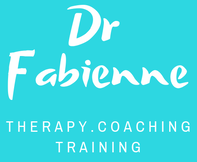|
You’ve tried them all; the two sticks of celery a day celebrity-endorsed fad diet, the too-good-to-be-true chocolate for breakfast diet, raw food on Thursdays, liquids for lunch, even diets dictated by the cycles of the moon. Yes, some of them make a difference for the first week, maybe even for a month or so, but rarely do they make a lasting impact on your weight. Is this because of you? Or are diets a flawed means of losing weight? Below are main reasons why diets fail.
Diets are too drastic When you take up a diet, you want results as quickly as possible. This can mean you over-estimate your will power, under-estimate the power of a rumbling stomach, and opt for an extreme diet. Reducing your intake of food, often to the point where you don't actually eat enough for your body to function properly, will leave you feeling hungry, irritable, and more stressed. Even if you manage to resist the overbearing urges to eat, the stress caused by feeling hungry triggers your body’s in-built ‘survival mode’. This means your body perceives your reduced diet as a threat to your survival, and slows down your ability to lose weight. Changing your diet shouldn’t make you feel worse. You should be feeling better; not only about the way you look, but better on the inside too. Starving yourself with a quick-fix two-week fast doesn’t make a lasting impact because it doesn’t do anything to challenge how you think about food. If anything, the cycle of relapsing that occurs with on-off dieting can reinforce your reliance on food as an emotional crutch. Diets are hard work It goes without saying that diets are restrictive. The food you like eating is forbidden, and the portions of food you’re allowed to eat are either too small or simply not enjoyable to eat. This means that your diet soon becomes a battleground between your cravings and your diminishing willpower. As soon as you add external emotional and social pressures into the mix, like a hard day at work or a meal out with friends, it’s very easy for you to relapse from your diet altogether. A diet that you don’t enjoy is not sustainable. Sooner or later you’ll crack. Pursuing a healthier lifestyle doesn’t have to be hard work and it doesn’t mean you can’t enjoy eating. Developing a better relationship with food and exploring why you eat is a much happier, healthier approach to long term weight-loss. With diets, food has control over you Whether its calorie counting, cheat days, or encouraging you to overeat a particular food or food group, traditional diets have a tendency to put food in the spotlight. In doing this, they programme your brain to think about food more, not less. This means more cravings, more eating, and less lweight loss. A long term approach to weight-loss should remove food from its pedestal. The Virtual Gastric Band uses clinical hypnosis to convince the brain that the stomach feels full after smaller portions. This means that you can still eat what you want when you want to, but you’re satisfied with less because you have changed the way you think about food. If you’ve been struggling with diets, and are interested in finding out more about the Virtual Gastric Band, call today on 0456 903 628 for your free 15-minute telephone consultation to find out how the program can help you to become slimmer.
0 Comments
Your comment will be posted after it is approved.
Leave a Reply. |
AuthorHi I'm Dr Fabienne and I believe in the capacity we all have to change our circumstances, given the right help, tools and inspiration! Archives
May 2024
Categories |

 RSS Feed
RSS Feed